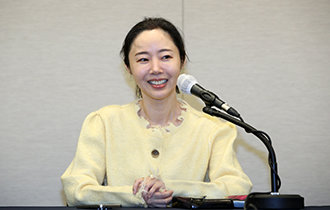`Major shareholders treated savings banks like piggy banks`
`Major shareholders treated savings banks like piggy banks`
Posted September. 20, 2011 08:36,
The Financial Supervisory Service said Monday that certain savings banks with normal operations were found to have extended illegal loans under borrowed names as well as banks that were suspended.
The financial watchdog said it will file a complaint against related majority shareholders and heads of the savings banks to prosecutors this month.
The latest scandal to hit Korean savings banks is expected to elicit criticism of their majority shareholders, who basically turned the banks into their private piggy banks.
In an inspection of 85 savings banks from July to August, financial authorities found that savings banks with normal operations extended illegal loans to majority shareholders under borrowed names as well as the seven savings banks suspended this month.
Audit results showed that the savings banks either lent massive sums to a single person through a borrowed-name account or to majority shareholders. A person who borrowed money from a savings bank set up a special purpose company to borrow more money for payment of overdue interest.
The banks lent more than 20 percent of their equity capital to a single person or made loans to majority shareholders. The illegal loan amounts of Ace Mutual Savings Bank, Parangsae Savings Bank and Tomato Savings Bank were particularly huge.
Ace Mutual saw its capital adequacy ratio set by the Bank for International Settlements plunge to minus 51.5 percent from 8.5 percent, as its lending to an individual significantly surpassed the mandatory ceiling of 16 billion won (14.08 U.S. million dollars).
Given that a single borrower steadily paid interest to others, the financial watchdog investigated and found that many savings banks extended loans via borrowed-name accounts.
A person who took out illegal loans at savings banks that managed to avoid suspension faced skyrocketing interest from overdue loans. He then set up a special purpose company to borrow additional loans to pay the interest.
Financial supervisors found no majority shareholder using special purpose companies for illegal loan extensions, as was the case in the Busan Savings Bank scandal. It was found, however, that special purpose companies were used to lend additional money for repaying initial loans.
A high-ranking financial regulatory official said, Though further investigation can unveil ties made between savings banks and financial authorities, we had to report to prosecutors all the savings banks engaged in illegal activities.
legman@donga.com







